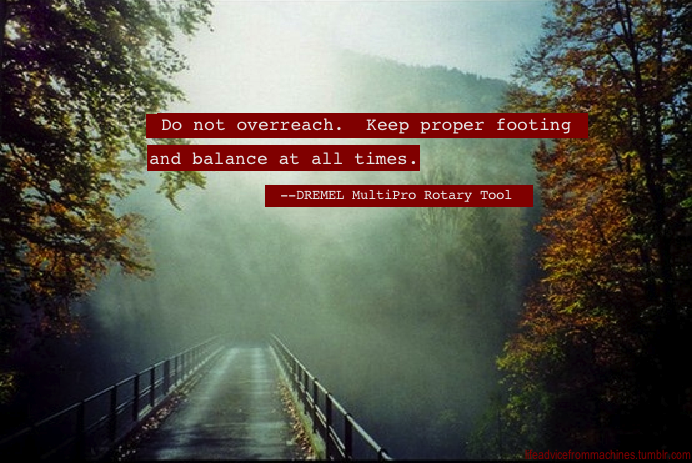Thought experiment:
Imagine you're in the mood to buy a new car (notice I said "in the
mood" and not "in the
market") and you've heard about a dealer a few blocks away that's practically giving them away. Your first reaction is "Wow, that doesn't sound quite right, but I'll check it out."
As you're walking down the sidewalk to the dealer, you start to notice there are cars
everywhere. "My god," you think. "Everybody's got one!" You walk past a large strip mall parking lot, full of gleaming cars, reinforcing the notion of their ubiquity.
Finally, you get to the dealer, who's got the biggest lot you've seen yet with even more cars on it. The cars are packed in so tight you can barely open the doors or drive a car off the lot. Transport trucks with even more cars are waiting at the entrance to the dealer. "So many cars!" you think.
The moment you're within sight, the sales team surrounds you, but none of them asks you about your financial condition. Instead. they simply beg you to buy your car from them, at any price. "We'll make it work!" they say.
So you reluctantly pick a young, quiet woman thinking she'll be the least of a bully.
"Follow me!" she chirps, elated to have been chosen.
"These are the cars I have today!" she beams. For some unexplainable reason, all the cars she's selling are at the farthest end of the lot. You scan the choices in front of you, but nothing seems quite right for you. None of the cars come in your favorite colors, nor do any of the trim packages appeal, but a couple of the interiors are really nice. And they probably run just fine, although long-term dependability is something that simply cannot be divined. You're just guessing, really.
"Do these have a warranty?" you ask sheepishly, already kind of knowing the answer. "Oh," the saleswoman answer casually, "all our cars are sold 'as is'."
"Well, what if I don't like the car?"
She hesitates as if the idea has simply never occurred to her. "Well, just come back and try another one! Everybody is going to have a different opinion of each car, so just keep buying one until you find five or six (or more!) that you love!"
"Wait a minute!" you interrupt indignantly. "What in the world makes you think I can afford to keep buying cars I don't like?"
She pauses, undefeated, and leans in. "Tell you what," she whispers, "I'll give you any car of mine you want. All I ask is you tell people how much you like the car and where you got it."
"Wait, WHAT?!" you gasp. "Where... where do these cars
come from?"
Without a hint of irony she answers: "I build them."
You step back, stunned. You'd walked on this lot expecting to pay a reasonable price for a reasonable car only to find out not only are the salespeople giving them away,
they're building them, too!
Suddenly all the cars you saw on your way here rush through your mind. The nice sports coupe, that forest-green SUV..they were practically given away in exchange for some word of mouth advertising. "So that's how they they all bought cars!" you think.
"Ok, how long will this thing last?"
She stares again as if nobody has ever asked this question. "As long as you need it to, I guess!" she smiles back, anticipating the confused look on your face. "Look, if I promise to call you the moment a better one is available will you take one of these today?" She's pressing her game, now.
You capitulate. "Fine, I'll take..... that one. Do you need my phone number?"
"No," she says flatly. "There's a phone in the car."
A few moments after you drive off the lot, she calls with news that she'll have a couple new models for you to check out on Thursday night, 8:30 pm at some dealer you've never heard of in a part of town you haven't visited in 15 years. But this time she wants $10 up front to see the debut. She'll call you again on Thursday morning.
Your heart sinks completely.
You pull over and abandon the free car. "Maybe somebody else will find it and fall in love with it."
You start walking home. On your way, you can't help but notice there are cars
everywhere...
------
Revelations:















.jpg)



